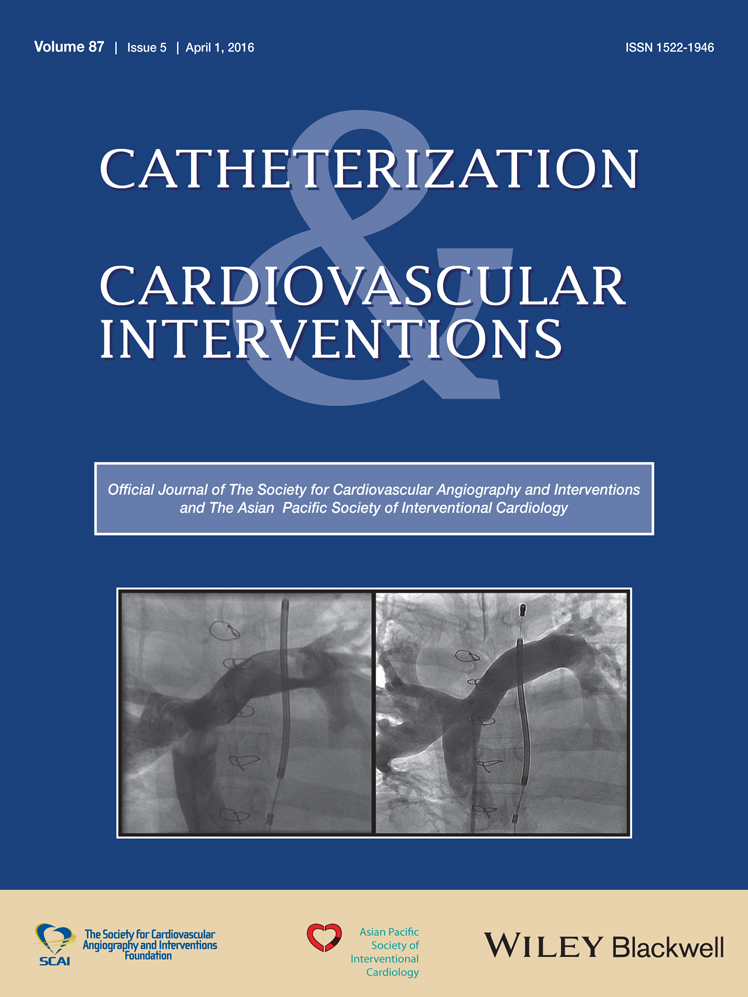Predictors of survival following trans-catheter aortic valve closure for left ventricular assist device associated aortic insufficiency
Conflict of interest: Dr Atman P Shah is a proctor for St. Jude Medical. Dr. Valluvan Jeevanadam receives honoraria from Thoratec and HeartWare. Dr. Nir Uriel receives honoraria from Thoratec and HeartWare. No other authors have relationships with industry or other potential conflicts of interest.
Abstract
Objective
This study sought to assess the long-term clinical benefits and predictors of survival of trans-catheter aortic valve closure in left ventricular assist device (LVAD) patients.
Background
LVADs have been shown to increase survival and quality of life in patients with end-stage heart failure. However, severe aortic insufficiency (AI) can develop in up to 50% of patients at 12 months resulting in significant morbidity and mortality. Trans-catheter treatment of LVAD associated AI has emerged as a potential alternative to surgical treatment.
Methods
We conducted a retrospective analysis of all patients undergoing trans-catheter aortic valve closure using an Amplatzer Multi-Fenestrated Septal Occluder “Cribriform” device to assess potential clinical and procedural factors associated with survival. Student's t-tests were used to compare baseline patient demographics and procedural characteristics, as well as patient outcomes immediately post procedure and at 6 months. A P-value of less than 0.05 was considered statistically significant.
Results
A total of 10 patients (70% male, median age 59 years) were included. Technical success was accomplished in 100% of patients with a 6 month survival rate of 30% (3/10). Compared with survivors, non-survivors had a higher rate of pre-procedural clinical co-morbidities, an increased likelihood of right ventricular failure, and received larger occluder devices.
Conclusions
Trans-catheter aortic valve closure successfully treats late severe AI in LVAD patients, however, the presence or development of right heart failure portends a worse prognosis. Further studies are needed to investigate the factors involved in the development of right ventricular failure, and potential treatment, in patients undergoing trans-catheter aortic valve closure. © 2015 Wiley Periodicals, Inc.




